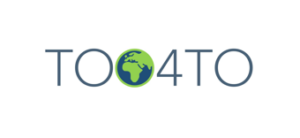AIM & OBJECTIVES
Sustainable Management: Tools for Tomorrow (TOO4TO) aims to increase the skills, competences, and awareness of future managers and employees in the field of available tools and methods to provide sustainable management, and, as a result, support sustainable development in the EU and beyond. Simultaneously, TOO4TO aspires to tackle the current and future challenges as guided by the EU supported SDGs. The project seeks to achieve its aim through the following objectives and their associated Intellectual Outputs (IOs):
OB1: To review the most recent and relevant materials devoted to sustainability that are applicable in an organisational context in the EU and beyond. The results deriving from this desk research will contribute to the creation of the training curriculum devoted to sustainable management.
IO1: Dynamic Material Bank – covering a review of relevant and up-to-date information and methods in the sustainable development and interdisciplinary field
Coordinating partner: Kaunas University of Technology (Lithuania)
OB2: To design a working life-oriented training curriculum whose learning outcomes reflect the labour market needs and the critical learning areas of students in sustainable management
IO2: training curriculum
Coordinating partner: Global Impact Grid (Germany)
OB3: To deliver high-quality and easily accessible training in sustainable management
IO3: e-learning module & materials (GUT). Two e-learning modules will emerge from this:
- A module offering learning materials with teacher support and transnational virtual team assignments (organised at partnering institutions)
- An open-access module offering asynchronous learning materials (available for anyone)
Coordinating partner: Gdansk University of Technology
OB4: To develop learners’ sustainable management skills needed in virtual teams, i.e., teamwork, communication, and problem-solving skills, as well as adaptability to new situations
IO4: Guide to virtual teams
Coordinating partner: Turku University of Applied Sciences
Target group:
The main target group consists of the participating institutions’ students from management disciplines, needing to increase their knowledge and competences in the field of sustainable management and its relationship to innovation.
Wider groups of beneficiaries include alumni and students from other higher educational institutions (HEIs), teachers, and working-life representatives.


